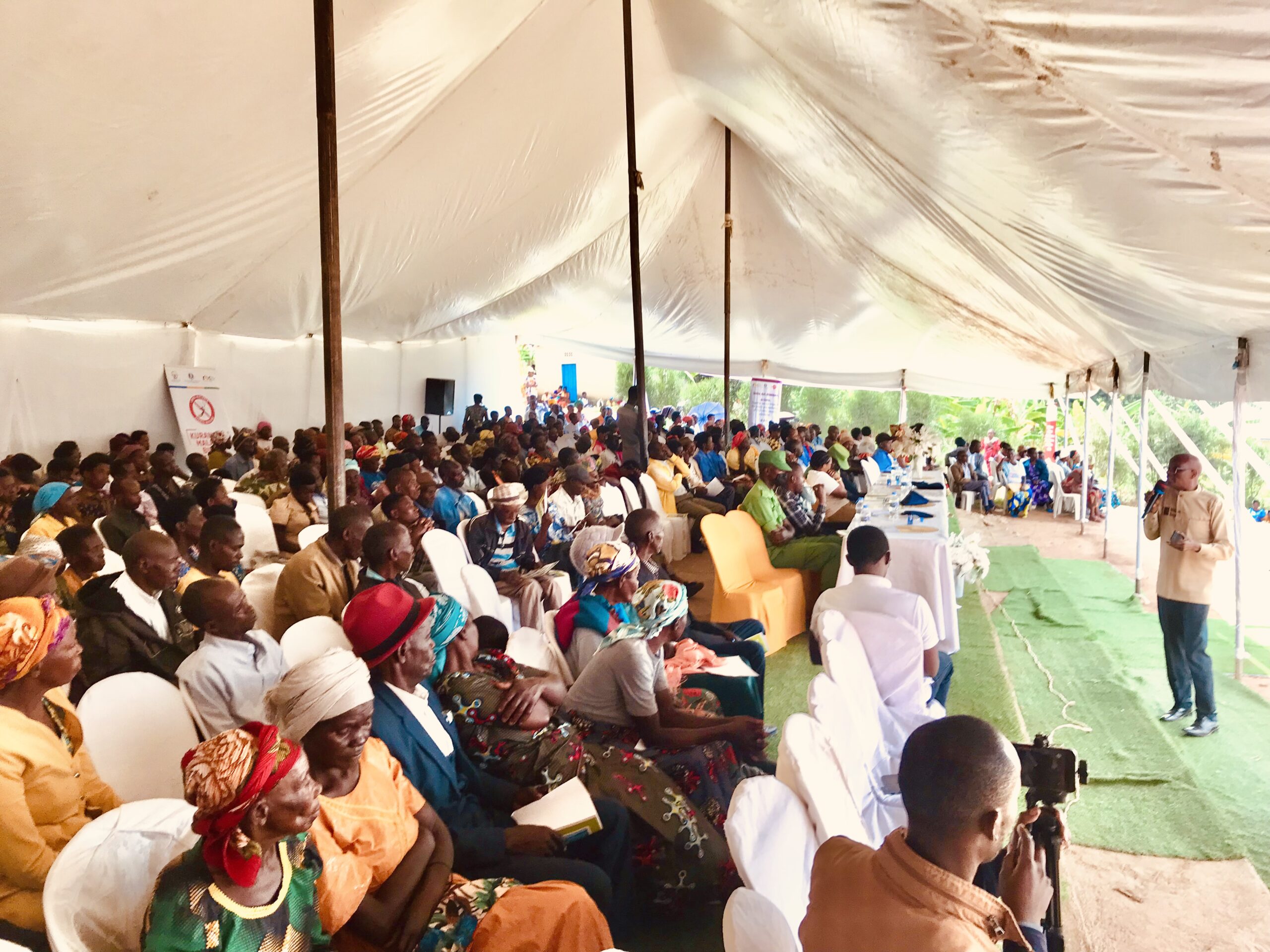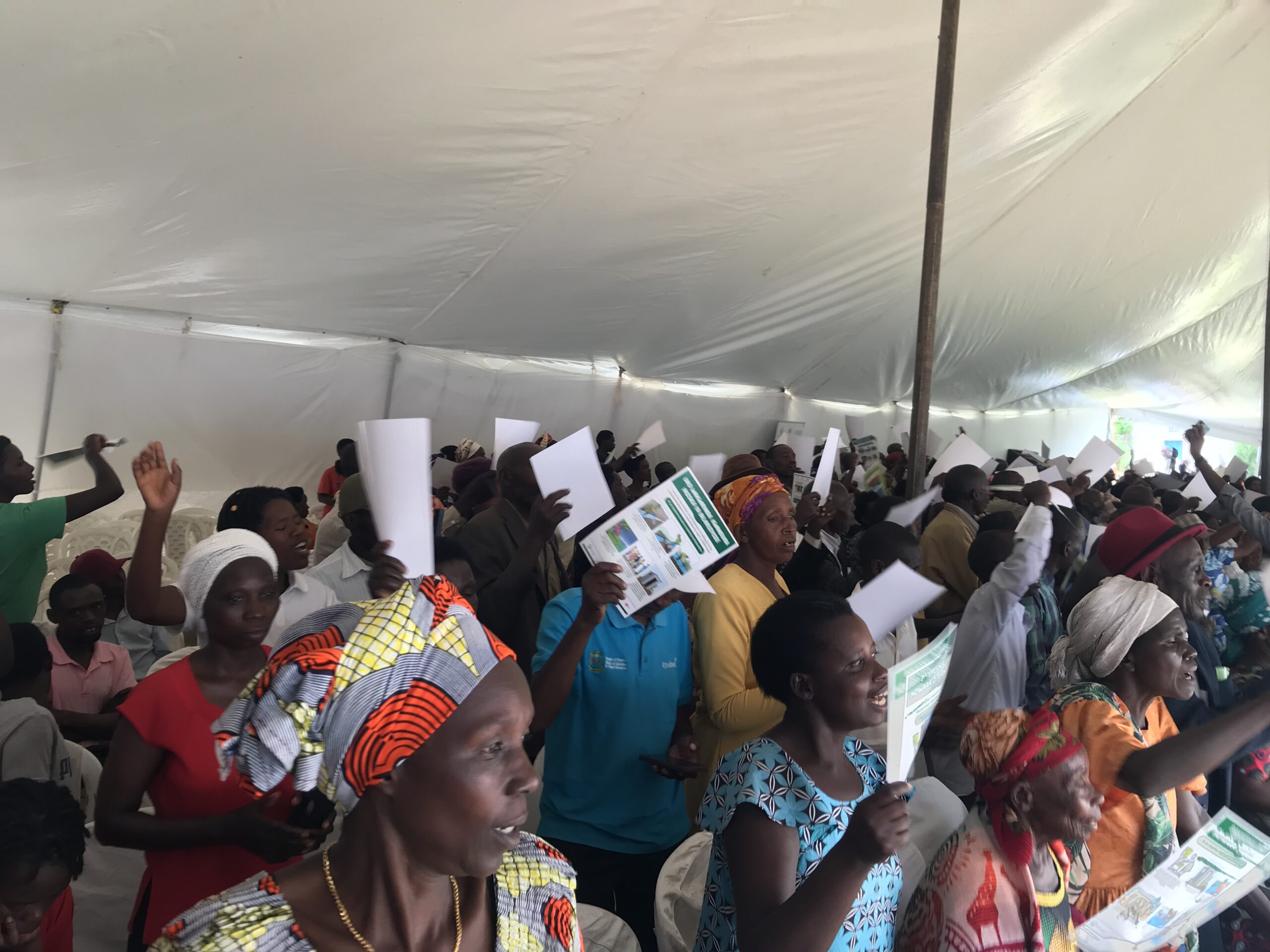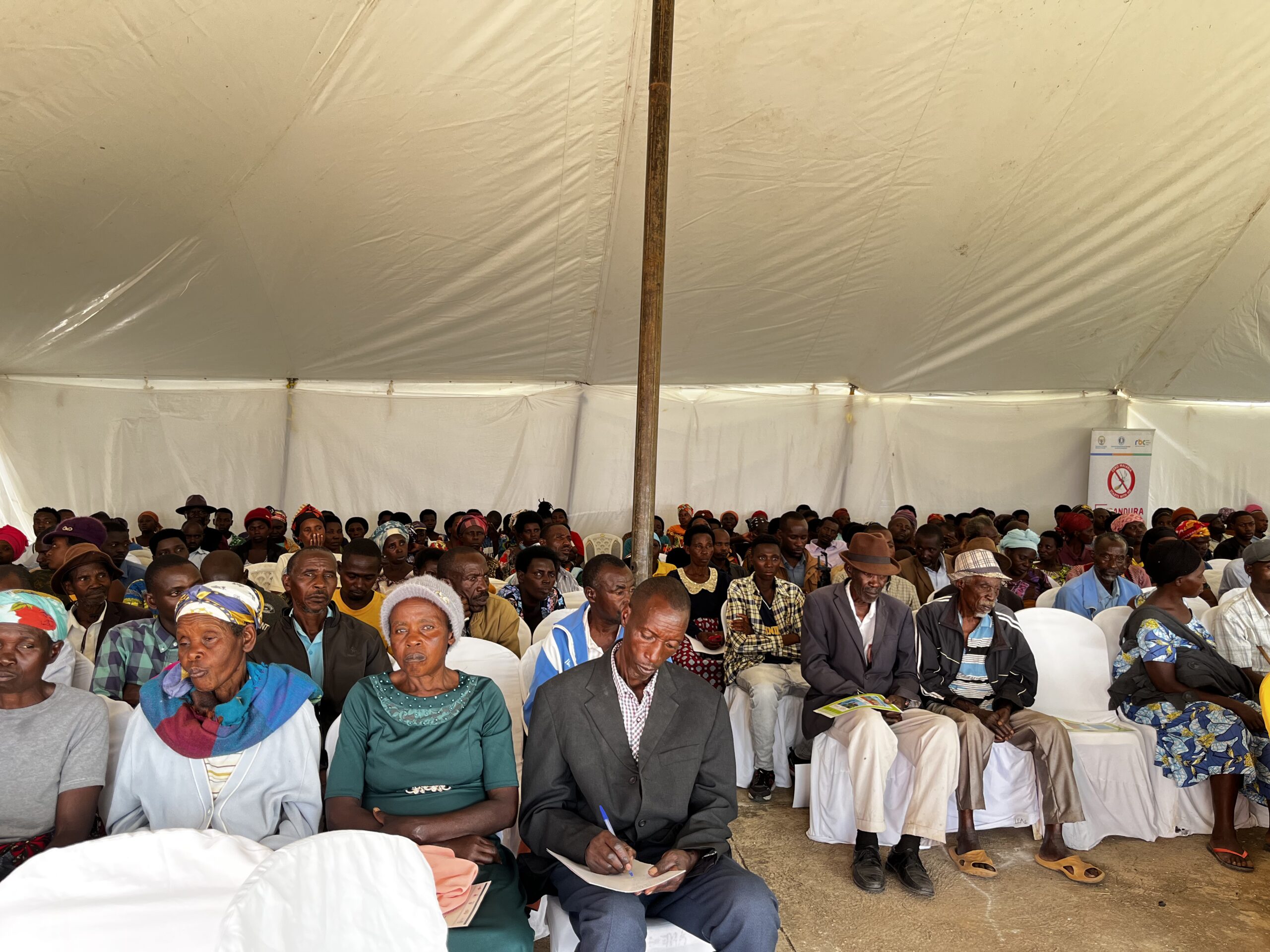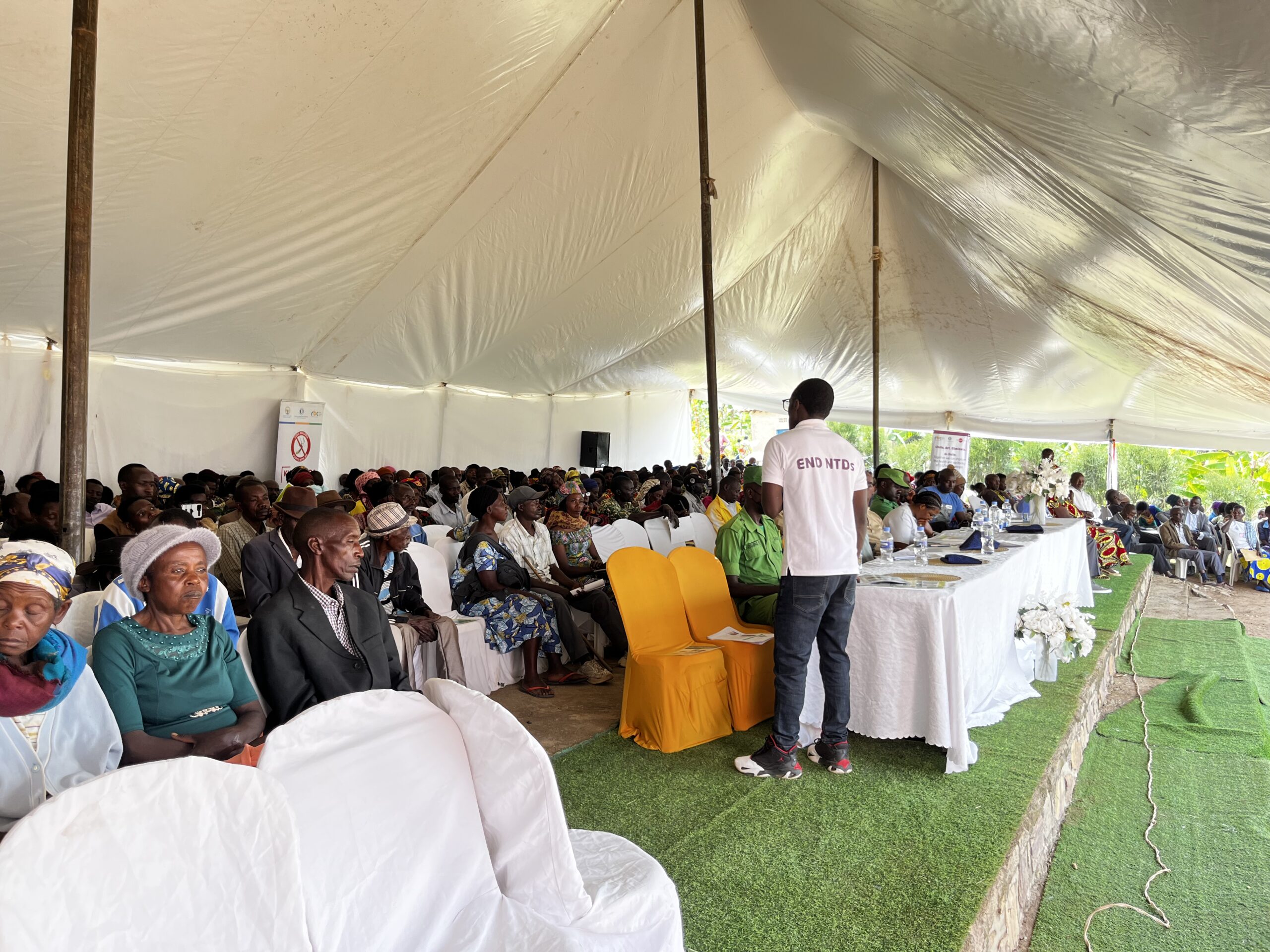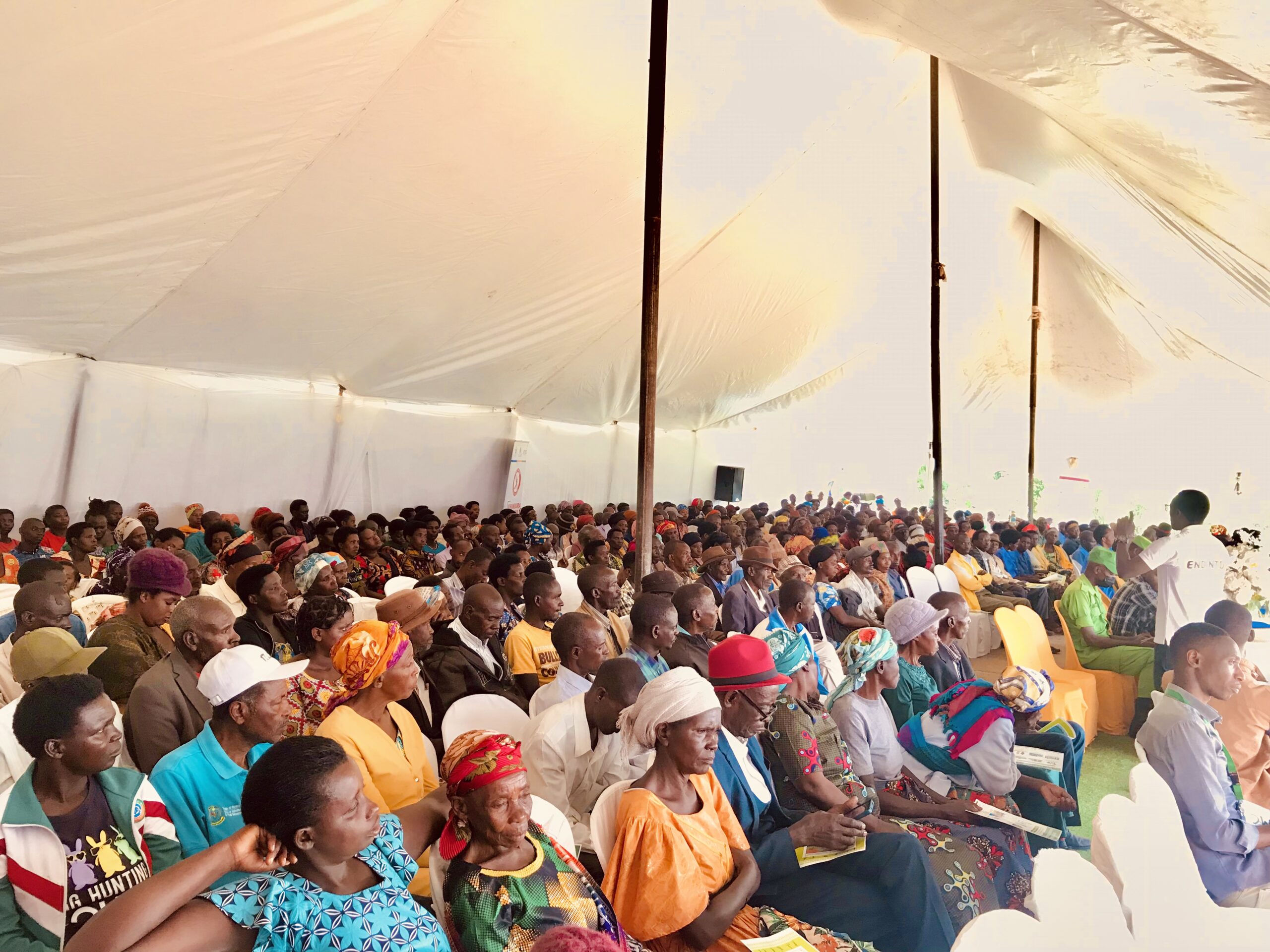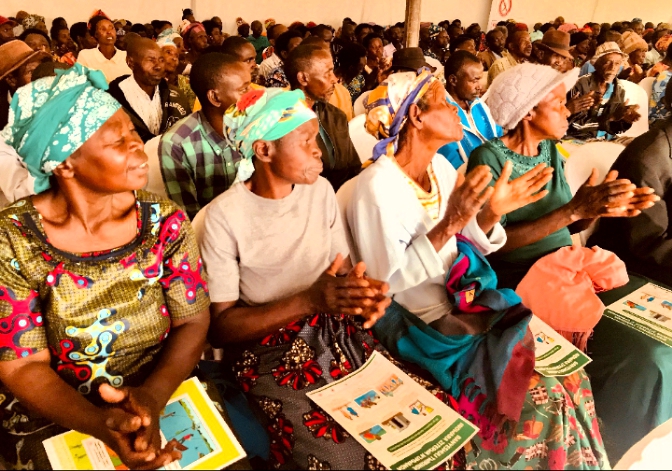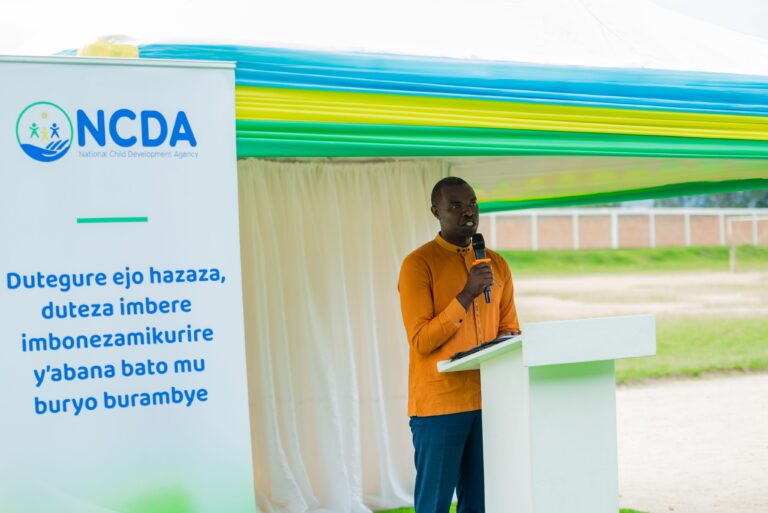Ruhango District residents have pledged to break long-standing habits of poor hygiene as part of an intensified community push to eliminate worm-related diseases by 2030.
The renewed commitment follows a large community awareness campaign targeting helminthiasis, schistosomiasis, and other sanitation-related diseases, including malaria. The campaign was conducted under the theme: “Together, let’s unite to eliminate helminthiasis and schistosomiasis.”
The initiative was supported by the Rwanda NGOs Forum on HIV/AIDS and Health Promotion, in partnership with the Rwanda Biomedical Center (RBC).
Richard Habimana, the district coordinator for Neglected Tropical Diseases (NTDs), said the campaign seeks to empower communities to eradicate these diseases within the next five years.
“Our goal is to ensure that, by 2030, NTDs are no longer found in our communities,” Habimana said.
He noted that the program is active in both Ruhango and Bugesera Districts, where studies show a high prevalence of intestinal worms and schistosomiasis.
During the campaign, residents pledged to change behaviors linked to poor hygiene, including drinking untreated water and using unsafe sanitation facilities.
Oliva Kampundu, a resident of Nyamagana Cell, said the campaign gave her the knowledge she needed to improve her daily hygiene.
“I will start drinking clean water and keeping my toilet clean. We also learned that swamp water can spread schistosomiasis, so we will avoid using it,” she said.
Pascal Ngezarugo, from Nyamugari Village, said the lessons motivated him to change his lifestyle and share the knowledge with others.
“I will now drink boiled water, wash my clothes often, and teach my neighbors good hygiene practices so we can all live healthier lives,” he said.
Odeta Kankindi, also from Nyamagana Cell, said she previously suffered from intestinal worms but later recovered. She emphasized that such diseases are preventable and treatable when hygiene is maintained.
Ruhango Sector Executive Secretary, Welars Kayitare, said health center data shows that sanitation-related diseases remain low in the area, except for malaria, which still appears at moderate levels. He said local leaders will continue visiting households to encourage proper hygiene practices.
Most of the residents trained during the campaign are rice farmers working in the Nyakiyange swamp under the COTEMUNYARU cooperative.
Key Hygiene Measures Taught to Residents
Preventing Bilharzia (Schistosomiasis)
Residents were urged to:
Clear vegetation in water bodies every three days.
Maintain free-flowing water to disrupt snail breeding.
Wear long boots and gloves when working in or near water.
Avoid open defecation.
Build and maintain clean, standard latrines.
Participate in mass deworming when medicines are distributed.
Avoid using swamp water for household purposes unless it is treated or boiled.
